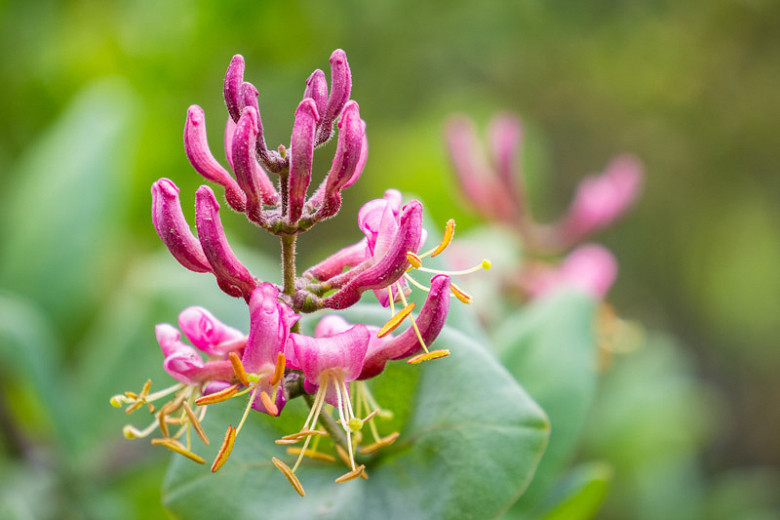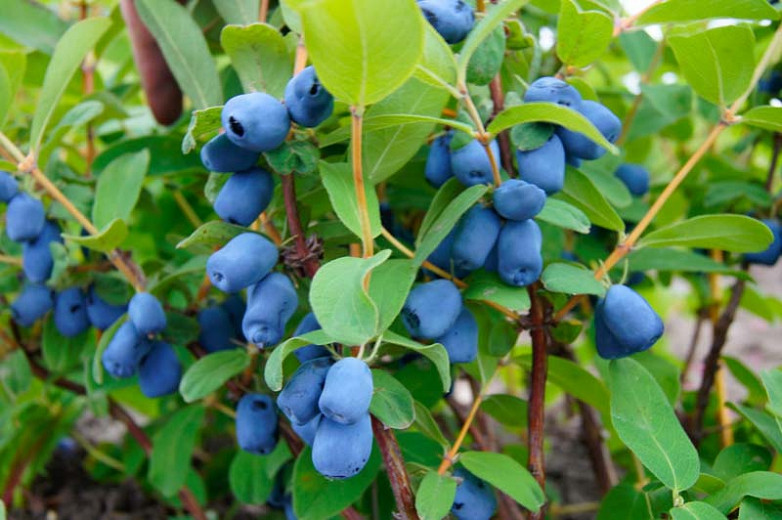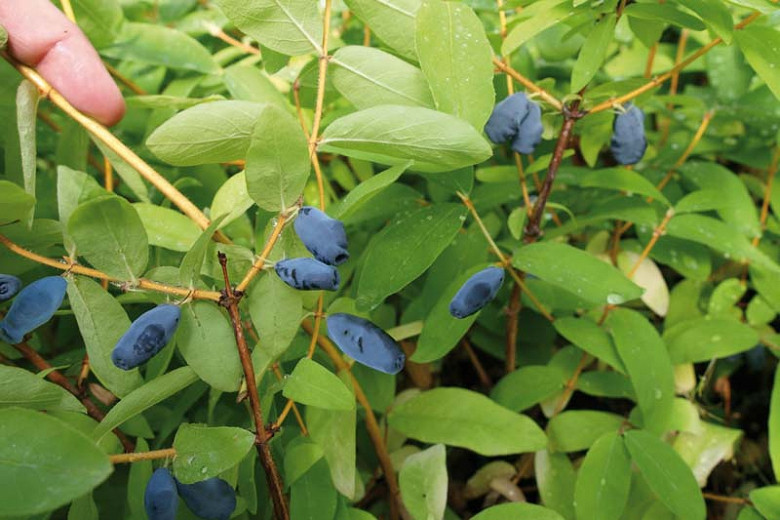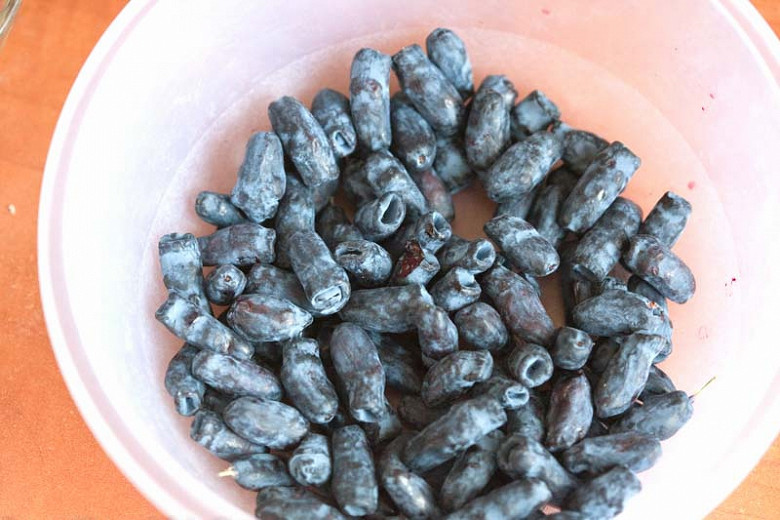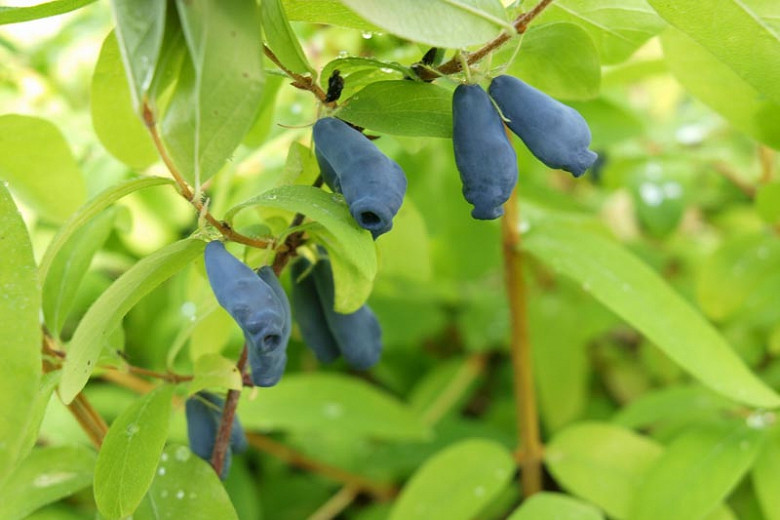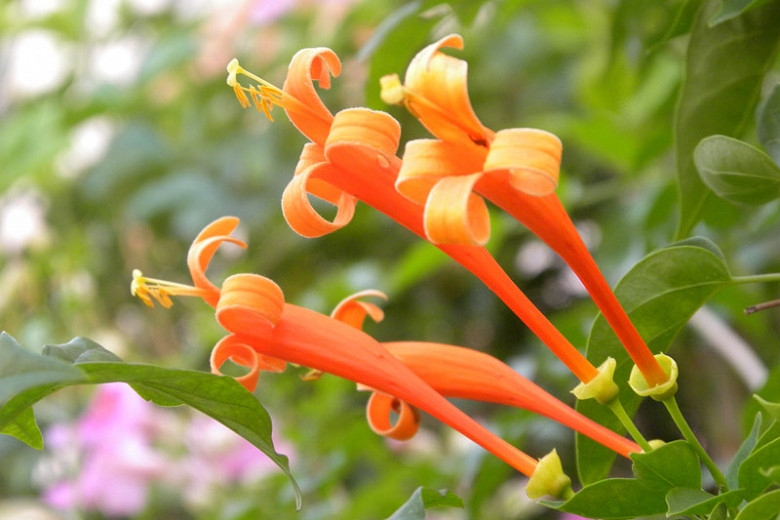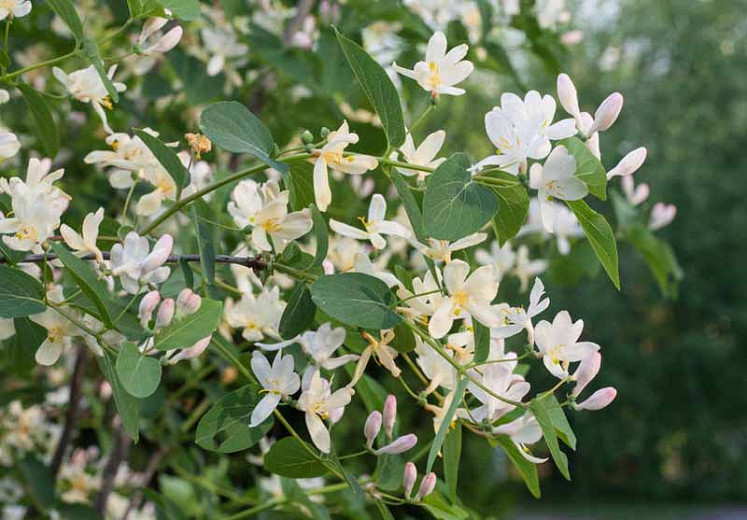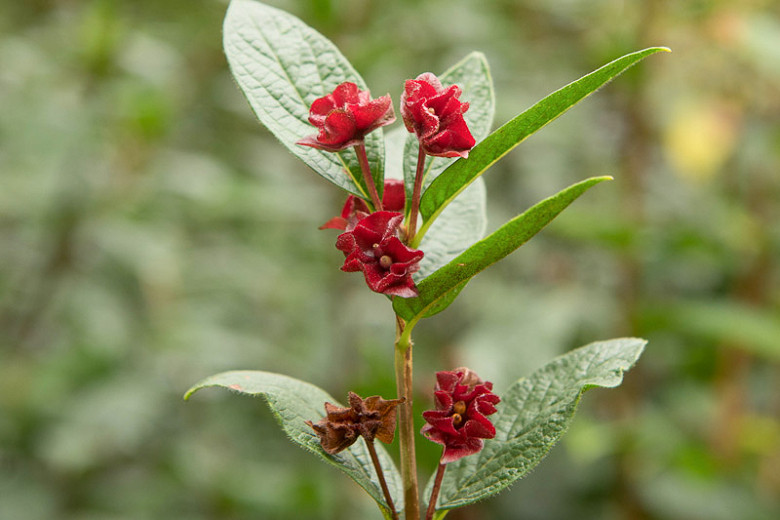Lonicera hispidula (Pink Honeysuckle)
Valued for its decorative flowers and berries, Lonicera hispidula (Pink Honeysuckle) is a deciduous to semi-evergreen climbing shrub with showy clusters, 3-4 in. wide (7-10 cm), of pink, rose, or purple tubular flowers in late spring to early summer. The flowers are magnets for bees, butterflies, hummingbirds, and other pollinators in search of nectar. They eventually give way to small, luminous red berries, which are ornamentally attractive but devoured by hungry birds. The blossoms contrast nicely with the foliage of softly hairy blue-green oval leaves. The upper leaf pairs are fused around the stem. Native to open woods and shrublands from southwest British Columbia to southwest California, Pink Honeysuckle grows in maritime to sub-maritime, summer-dry climates. Soils are generally very dry to moderately dry and often acidic. Although not fragrant, this honeysuckle is still a lovely garden plant, and it does not have the aggressive tendencies of Japanese honeysuckle (Lonicera japonica). It will happily cover walls, fences, or pergolas for a pretty floral display. This species tends to be evergreen in a mild climate. Native people used the hollow stems for pipe stems.
- Grows up to 3-20 ft. tall (90-600 cm) and 6-8 ft. wide (180-240 cm).
- A full sun to full shade lover, this plant is best grown in acidic, dry to moist, well-drained soils. Tolerates a variety of soils including clay. Does well in soils that are moist year-round or dry in the summer but with minimal irrigation. Drought tolerant once established.
- Excellent choice for covering walls, fences, trellises, and pergolas.
- Low maintenance, this plant is generally pest and disease free. Keep an eye out for aphids.
- Propagate by seed. Seeds must be stratified for one month.
- The berries may be mildly poisonous if eaten.
- Native to California, Oregon, and Washington.
Requirements
| Hardiness | 7 – 9 |
|---|---|
| Climate Zones | 7, 8, 9, 14, 15, 16, 17, 18, 19, 20, 21, 22, 23, 24 |
| Plant Type | Climbers, Shrubs |
| Plant Family | Lonicera – Honeysuckles |
| Exposure | Full Sun, Partial Sun, Shade |
| Season of Interest | Spring (Late)Summer (Early)Fall |
| Height | 3' – 20' (90cm – 6m) |
| Spread | 6' – 8' (180cm – 240cm) |
| Water Needs | Low, Average |
| Maintenance | Low |
| Soil Type | Clay, Loam, Sand |
| Soil pH | Acid, Neutral |
| Soil Drainage | Moist but Well-Drained, Well-Drained |
| Characteristics | Showy, Semi-Evergreen, Fruit & Berries |
| Native Plants | United States, California, Pacific Northwest, Oregon, Washington |
| Tolerance | Deer, Drought |
| Attracts | Bees, Birds, Butterflies, Hummingbirds |
| Garden Uses | Arbors, Pergolas, Trellises, Wall-Side Borders, Walls and Fences |
| Garden Styles | Informal and Cottage |
